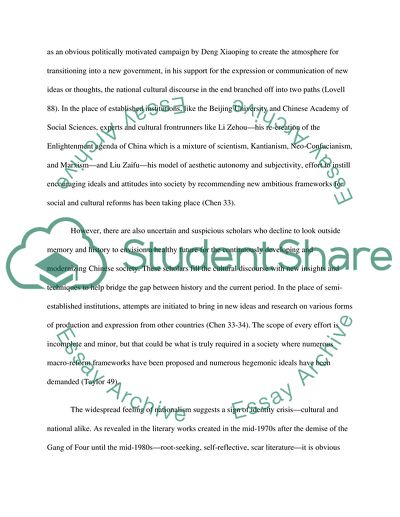Cite this document
(“Modern Chinese Literary Self and Identity Assignment - 1”, n.d.)
Retrieved from https://studentshare.org/literature/1668356-final-paper
Retrieved from https://studentshare.org/literature/1668356-final-paper
(Modern Chinese Literary Self and Identity Assignment - 1)
https://studentshare.org/literature/1668356-final-paper.
https://studentshare.org/literature/1668356-final-paper.
“Modern Chinese Literary Self and Identity Assignment - 1”, n.d. https://studentshare.org/literature/1668356-final-paper.


